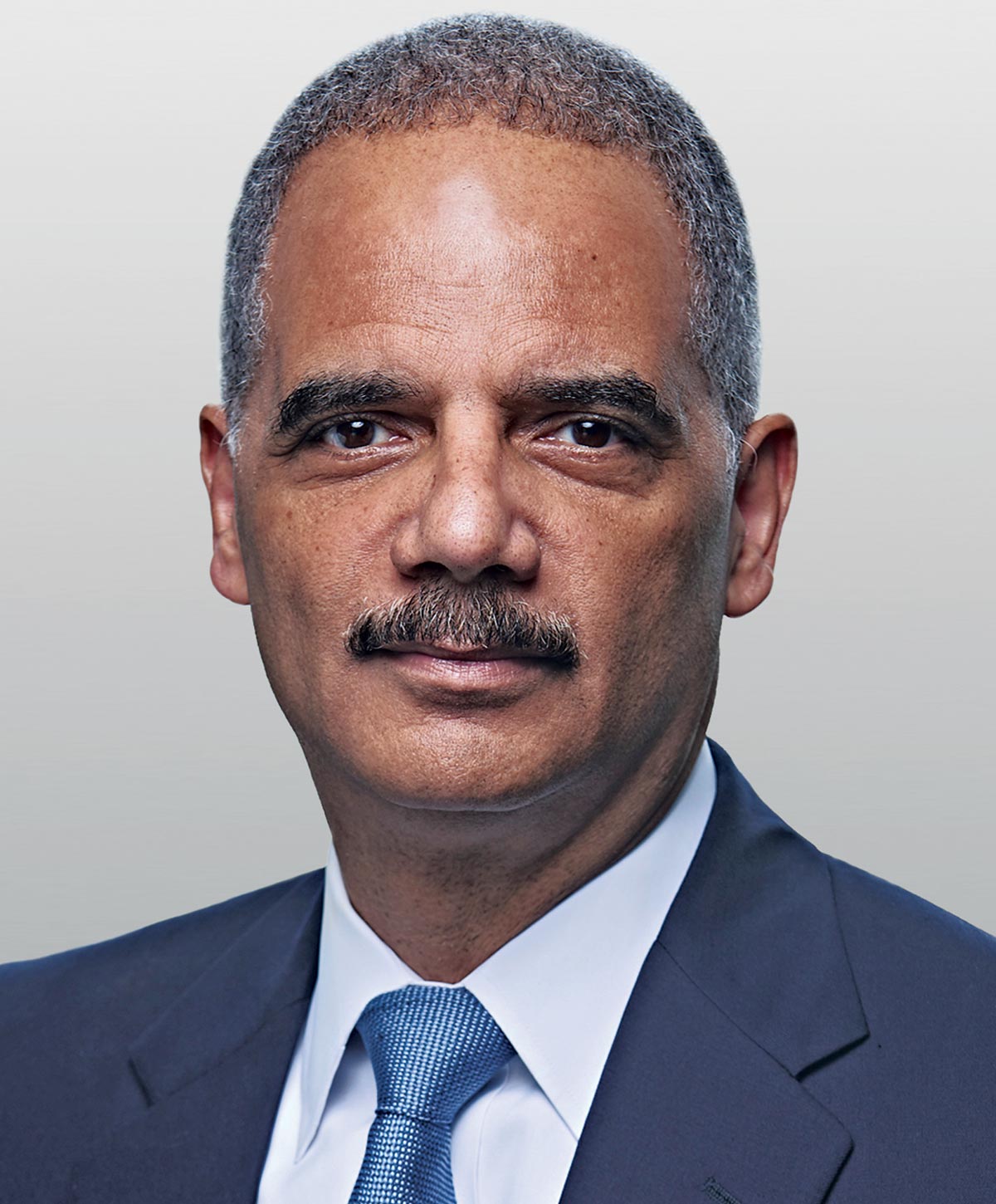
Democracy and Civil Rights
ric Holder, the 82nd U.S. attorney general, spoke to more than 500 College community members as part of the inaugural event in a virtual series sponsored by the President’s Fund for Racial Justice and the Social Responsibility Committee of the Board of Managers.
Holder, the first African American in that role (he served from February 2009 to April 2015), discussed a wide range of topics, including the state of American democracy, civil rights, and voting rights.

courtesy of the haiti clinic
On the Ground in Haiti
The remote event featured a conversation with Holder and Professor of History Allison Dorsey, with questions moderated by Tristan Alston ’22, Sonia Linares ’22, and Daniel Torres Balauro ’23, and an introduction from President Valerie Smith.
Holder acknowledged the psychological toll that the events of 2020 and the historic realities of race in America have taken on Black citizens. Despite the past year’s events relating to police abuses, Holder said he remains optimistic that the energy behind the growing social-justice movements will continue to inspire change for the better.
Holder urged audience members to increase their engagement in their communities and in government organizations. “Regular, powerful citizens can be involved in the process and have an impact,” said Holder. “We should never underestimate the power we have and young people especially. … The largest voting bloc in this country is young people.”
Gathering together as citizens to demand change and participating in the process is crucial, he said.
“There’s no question that 2020 was a moment,” Holder said. “But the question really is going to be, does the moment lead to a movement.”

Democracy and Civil Rights
ric Holder, the 82nd U.S. attorney general, spoke to more than 500 College community members as part of the inaugural event in a virtual series sponsored by the President’s Fund for Racial Justice and the Social Responsibility Committee of the Board of Managers.
Holder, the first African American in that role (he served from February 2009 to April 2015), discussed a wide range of topics, including the state of American democracy, civil rights, and voting rights.
“Eric Holder was a natural choice to kick off this series on the challenges of citizenship in a multiracial democracy,” said James Snipes ’75, chair of the Social Responsibility Committee of the Board of Managers. “Throughout his career, as a lawyer, judge, and attorney general, he has shown an extraordinary commitment to civil rights, and voting rights in particular. He set the bar high for the programs that will follow.”
Holder acknowledged the psychological toll that the events of 2020 and the historic realities of race in America have taken on Black citizens. Despite the past year’s events relating to police abuses, Holder said he remains optimistic that the energy behind the growing social-justice movements will continue to inspire change for the better.
Holder urged audience members to increase their engagement in their communities and in government organizations. “Regular, powerful citizens can be involved in the process and have an impact,” said Holder. “We should never underestimate the power we have and young people especially. … The largest voting bloc in this country is young people.”
Gathering together as citizens to demand change and participating in the process is crucial, he said.
“There’s no question that 2020 was a moment,” Holder said. “But the question really is going to be, does the moment lead to a movement.”
MORE: bit.ly/HolderSwat

courtesy of the haiti clinic
On the Ground in Haiti
Neil Heskel ’74 and Kevin Browngoehl ’78 established the Haiti Clinic in 2007 and were on the ground to help when the 2010 earthquake devastated the island nation. The two doctors again coordinated relief efforts in 2021 when a magnitude 7.2 earthquake struck the Tiburon Peninsula in Haiti on Aug. 14. “The death toll is over 2,100, with more than 13,000 injured and an unknown number of people missing,” says Heskel (pictured above with a young patient and his mother). “Hurricane Grace swept over Haiti, hampering the complicated search-and-rescue mission. The Haiti Clinic provided medical care and supplies in several of the hardest-hit areas.” Hiring Haitian physicians, nurses, and other health care workers to help with their efforts also helps local families have a source of income. “The permanent clinic in Cité Soleil is open and seeing patients daily while offering telemedicine visits for those who cannot safely travel,” says Heskel. “The Haiti Clinic’s remote team is collaborating with other organizations in efforts to care for as many sick and injured as possible.” Water and food are desperately needed, Heskel adds: “Our team had to drive over two hours — each way — to fill water buckets. Our volunteers in the U.S. are assembling and shipping supplies.”